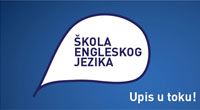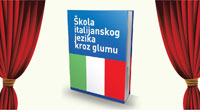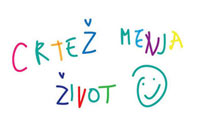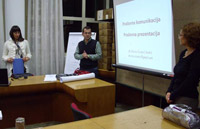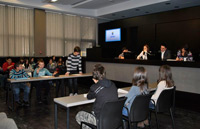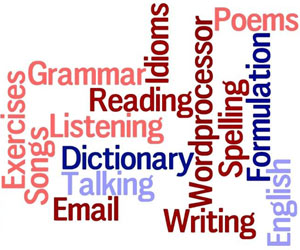
Jedan nivo Škole engleskog jezika ima ukupno 32 časa po 45 minuta, a nastava se održava mesec dana po četiri dvočasa nedeljno. Redovni upisni rokovi za Školu engleskog jezika su na početku svakog meseca, a nastava počinje 15. u mesecu. Letnja pauza je u periodu od 1. juna do 1. septembra.
Šta se uči na kom nivou?
Starter 1: alphabet, numbers, saying hello, subject pronouns (I, you…), plurals, verb to be, adjectives and possessive adjectives, possessive ‘s, phrases with like, hate, etc. Present Simple, telling the time.
Starter 2: frequency adverbs, time phrases with at/ in/on, object pronouns, there is/are, can for ability, prepositions of place, Past Simple of be, months and dates, big numbers, Past Simple (regular and irregular verbs), Future - be going to.
Elementary 1: Wh- questions, this/that/these/those, have got, How much/many, talking about time and prices, Whose…?, phrases for special days, would, likes and dislikes, one and ones, some/any/a.
Elementary 2: adjectives with very/too/quite/really, past time phrases with ago/last/in, articles (a/an/the), comparatives, I’d rather…I’d like…I want…, Present Continuous, adverbs, How often..? and frequency expressions, imperatives, should/shouldn’t, might and Future- be going to, prepositions of place and movements.
Pre-Intermediate 1: review of verb forms and questions (Present Simple, Past Simple, Present Continuous, be going to), subject questions, Past Continuous, connecting words, have to/had to, activity and state verbs, Present Perfect, will for prediction, might and will be able to, future plans and ambitions (be going to, be planning to etc).
Pre-Intermediate 2: comparatives, superlatives, (not) as…as, a lot/a bit/much, prefixes and opposites of adjectives (un-, im-, dis-, in-), Present Continuous for future arrangements, Present Perfect, quantifiers, should/shouldn’t/must, infinitive of purpose, first conditional, future time phrases with when/as soon as/until…, too/too much/too many/(not) enough, phrasal verbs, Present Simple passive, used to, use of articles a/an/the/no article.
Intermediate 1: question forms, adjectives to describe feelings, prepositions with adjectives, question tags, modal verbs; be able to, be allowed to, be supposed to, Present Simple and Continuous, gradable and strong adjectives, adverbs, Present Perfect Simple (experience, unfinished past and recent events), Present Perfect Continuous, used to, Past Perfect, making comparisons, the future (will, be going to, Present Continuous), verb patterns (verb + ing, infinitive with to…).
Intermediate 2: zero conditional, conditionals with imperatives and modal verbs, first conditional and future time clauses, second conditional, ability (be able to, have no idea how, be good at, etc.), use of articles (a/an/the/no article), the passive, quantifiers (a bit of, too much/many, plenty of, etc.), prefixes and suffixes, relative clauses with who/that/which/where/when/whose, Present Perfect Simple active and passive for recent events, was/were going to, was/were supposed to, modal verbs: making deductions, phrasal verbs.
Upper-Intermediate 1: review of verb forms (Present Simple, Past Simple, Present Continuous, Past Continuous, Present Perfect Simple, Past Perfect Simple, Present Perfect Continuous, Present Simple Passive, Past Simple Passive), uses of auxiliaries, expressing frequency, present and past habits, repeated actions and states, be used to/get used to, agreeing and disagreeing, second conditional (alternatives for if), third conditional, verbs and prepositions, defining, non-defining and reduced relative clauses, ways of comparing, future verb forms (Future Continuous), homophones.
Upper-Intermediate 2: uses of verb + ing, levels of certainty about the future, simple and continuous aspects, state and activity verbs, Present Perfect Simple, Present Perfect Continuous, wishes, should have, the passive, as/like/such as/so/such, homonyms, have/get something done, get somebody to do something, do something yourself, quantifiers, compound nouns and adjectives.
Advanced 1: time expressions with Past Simple and Present Perfect, cleft sentences, relative clauses with prepositions, participle clauses, introductory it, inversion, euphemisms, phrases referring to the future, future in the past, reflexive pronouns.
Advanced 2: formal and informal ways of comparing, position of adverbials, dramatic verbs, mixed conditionals, impersonal report structures, metaphors, past verb forms with future or present meaning, suffixes, idiomatic phrases.
Budi u Centru pravih vrednosti!


